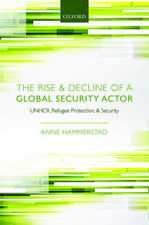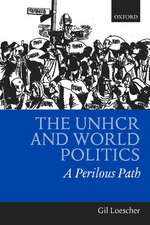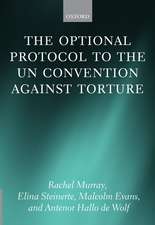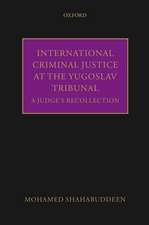Decision-Making in the UN Security Council: The Case of Haiti, 1990-1997
Autor David Maloneen Limba Engleză Hardback – 5 noi 1998
Preț: 285.65 lei
Preț vechi: 370.13 lei
-23% Nou
Puncte Express: 428
Preț estimativ în valută:
54.67€ • 56.47$ • 45.50£
54.67€ • 56.47$ • 45.50£
Carte tipărită la comandă
Livrare economică 14-20 martie
Preluare comenzi: 021 569.72.76
Specificații
ISBN-13: 9780198294832
ISBN-10: 0198294832
Pagini: 356
Dimensiuni: 162 x 243 x 23 mm
Greutate: 0.66 kg
Editura: OUP OXFORD
Colecția OUP Oxford
Locul publicării:Oxford, United Kingdom
ISBN-10: 0198294832
Pagini: 356
Dimensiuni: 162 x 243 x 23 mm
Greutate: 0.66 kg
Editura: OUP OXFORD
Colecția OUP Oxford
Locul publicării:Oxford, United Kingdom
Recenzii
'accessible and of great value.'
Malone's insight into the diplomacy behind the rhetoric is the book's greatest strength ... it is precisely his account of the decision-making process outside the Security Council that makes this volume so interesting.
Malone's insight into the diplomacy behind the rhetoric is the book's greatest strength ... it is precisely his account of the decision-making process outside the Security Council that makes this volume so interesting.













